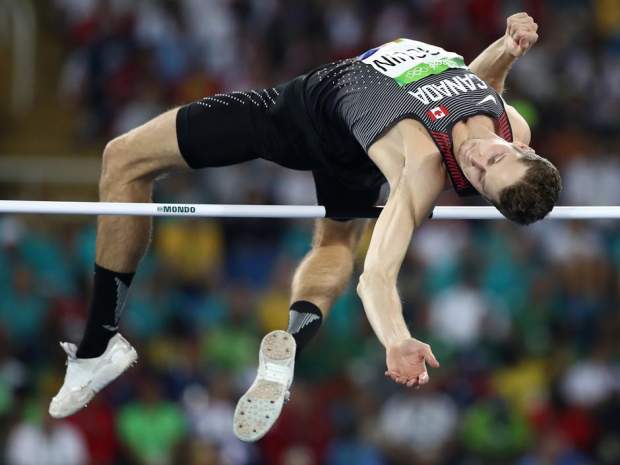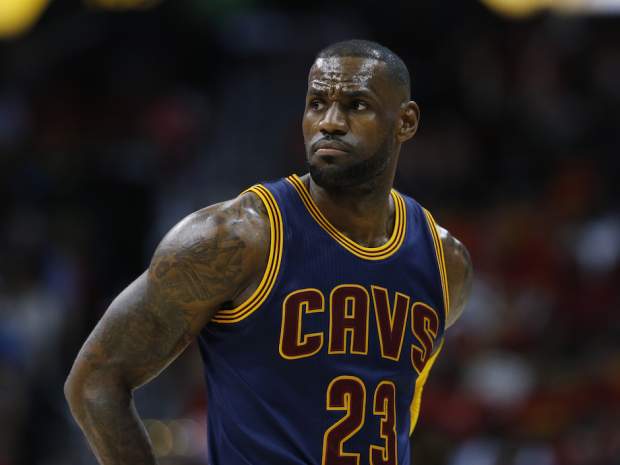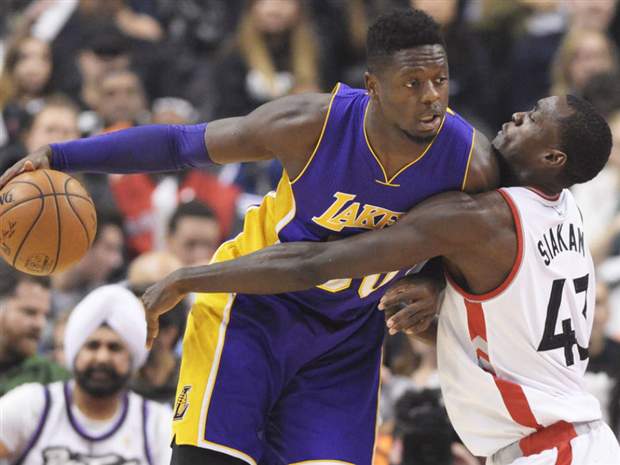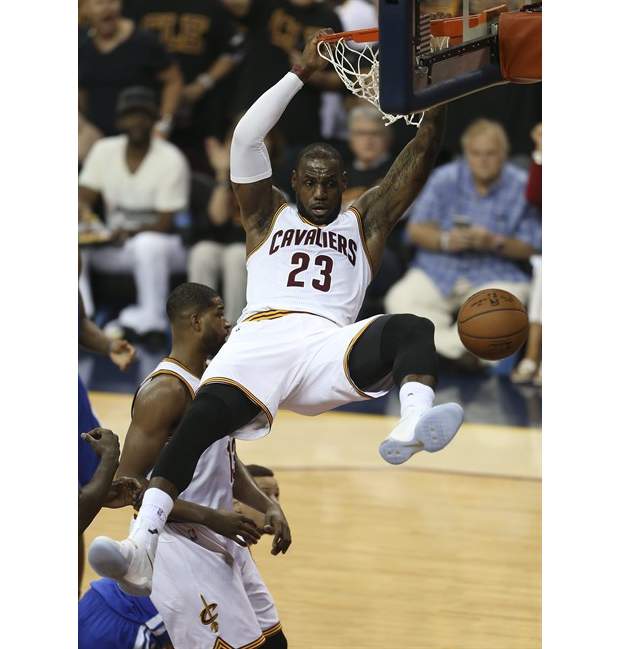Steve Simmons: High Jumper Derek Drouin Stays in the Moment

RIO DE JANEIRO — Derek Drouin and Andre De Grasse own the same colour medal from the same sport of track and field from two different Olympic Games and one bronze was celebrated nationally, the other is hardly remembered.
It doesn’t bother Drouin much as he takes his run at his second Olympic medal Tuesday night, trying to become the first Canadian in 84 years to win athletics medals in consecutive Games. He doesn’t care much for headlines or publicity. He doesn’t care if you know his name. He isn’t necessarily high jumping for the medal or even the country: He’s high jumping for himself.
That’s how he views it. In his mind, that’s how he has to view it.
“You can only do what you do,” said Drouin, who trains in Toronto and grew up in tiny Corunna, Ont. “You can’t control your competitors. If seven guys jump 2.40 and I get left off the podium, I get left off the podium.
“I can’t be thinking ‘I’m the defending world champion or that I won a medal in London.’ You can’t think that kind of stuff in this sport. In the moment, the only thing on my mind is the moment. The only thing I’m thinking about is I’m trying to win on that day.”
The medal, which would be cherished by many, is more prized as a possession by Drouin than as an accomplishment. Few remember him tying for third in London late on a Tuesday night.
“I’m not particularly proud of the way I jumped in London,” said Drouin. “Nine times out of 10 that wouldn’t be enough to win a medal. At the end of the day, it doesn’t matter what the time or what the height is. You’re the best that day if you jump the highest.
“I’m not someone who needs attention or cares much for the limelight. I was totally OK with the amount of attention. If anything, I found that much attention a little overwhelming.”
The last time any Canadian won medals in two consecutive Olympics at the track was in 1932, when the all but forgotten Phil Edwards won five medals over the 1928 and ’32 Games. The also forgotten Alex Wilson won four medals in ’28 and ’32, as well. Since then, only Ben Johnson, before the disqualification.
If you discount the medals from the boycotted 1984 Games in Los Angeles, Canada has won just 10 track medals in the past nine Olympic Games in total. This Olympic meet could be the greatest in Canadian history — and that’s something that motivates Drouin, being part of this deep team.
“After London, I felt some pressure,” he said. “I felt I had to back up the medal. I needed to prove it wasn’t a fluke. And I’ve gotten past that. I don’t go into this thinking I need to medal again or win gold to prove anything. I’ve changed. I’m a lot more confident. It’s a different kind of confidence. I know if I do what I need to do I can be competitive with everybody in the world — and if my best isn’t good enough …”
Brianne Theisen-Eaton led off for the Canadian track team with a gutsy medal performance Saturday night in the heptathlon. She passed the baton to De Grasse, who won his first medal Sunday night. Shawn Barber, the world champion pole vaulter, was batting third on Monday. Now comes Drouin in the cleanup spot.
In recent Olympics there were hopes for a medal, maybe one, maybe two. Before Drouin took bronze in London, Canada won two medals in Beijing, none in Athens or Sydney, two in Atlanta, three in Barcelona, one, after the dust settled, in Seoul.
“It would be a huge disappointment for us not to walk away with a handful of medals here and I don’t think that’s a lofty goal or super unrealistic,” said Drouin, 26. “I’m impressed with so many of my teammates in different ways. The way Andre handled Toronto last summer and all the pressure, and I think he’ll do the same here. Brianne is phenomenal but so is Damian Warner. The best thing about all of them, and that includes Shawnacy (Barber), is all these people made leaps into stardom and are still fantastic people,” said Drouin.
Heading into Tuesday night, Drouin tied for the lead among 15 qualifiers, jumping clean at 2.29. The American Erik Kynard, who won silver in London, also jumped 2.29. The gold-medal winning Russian athlete has been banned from these Games.
So what will it take to win gold?
“I tried doing that in the past and have been proven wrong,” said Drouin. “So I don’t think that way anymore. It would be a mistake to try and even guess. There’s a handful of guys capable of jumping 2.40. I’m one of them. Let’s see what happens.”








